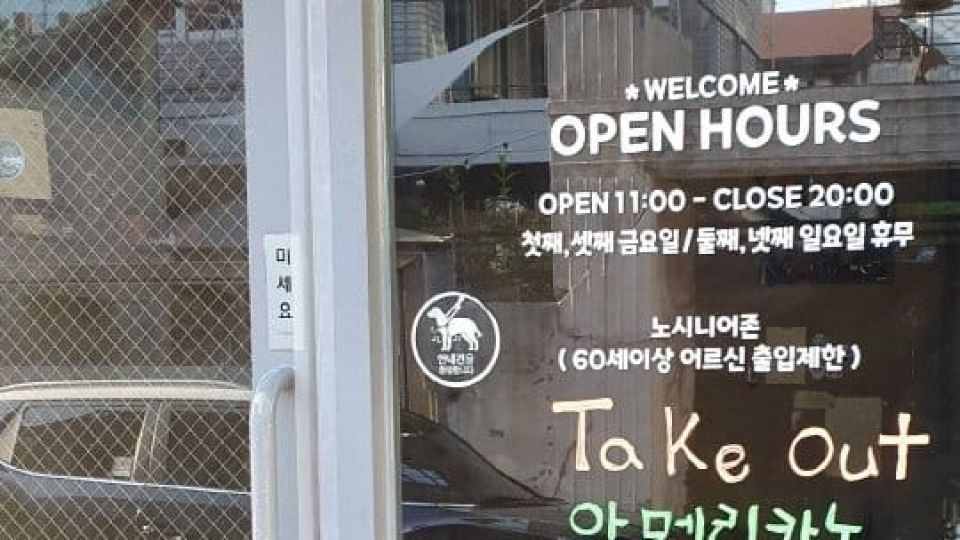May 10, 2023
SEOUL – A coffee shop’s decision to ban elderly customers has sparked renewed criticism amid ongoing controversy over “no kids zones,” where some restaurants or commercial venues prohibit the entry of children based on the owners’ preferences.
A photo posted on an online community on Monday showed a cafe with text on the door that reads: “No senior zone (no entry for elderly over 60).” Beside the text is a sticker that welcomes guide dogs.
The netizen who posted the photo criticized the cafe, saying: “I do not know why the owner of the cafe has decided to put up such signs, but I’m worried that my parents might see them while passing by.” Other community users joined the criticism, lamenting that this may lead to more establishments that ban entry for people of certain age groups.
The post comes amid growing concerns over public displays of intolerance in Korean society.
“The continuous emergence of ‘no-something-zone’ in our society means that exclusion among groups is increasing, while efforts to understand each other are disappearing,” said sociology professor Lee Min-ah at Chung-Ang University.
In an attempt to raise public awareness on such discriminatory actions, Rep. Yong Hye-in of the minor progressive Basic Income Party last week made a speech against no kids zones with her 23-month-old son by her side at the National Assembly.
“We need a society that values not only speed and competence, but also slowness and inexperience. To address the issue of the lowest fertility rates in the world, we must transform a culture that marginalizes both children and the elderly,” Yong said.
Meanwhile, the Jeju Provincial Council announced Monday that it would review the ordinance banning no kids zones this coming Thursday. The ordinance submitted to the council attempts to “recommend” businesses not to designate themselves as no kids zones in order to protect human rights and to create an environment for children’s healthy development and growth.
Chung Ick-joong, chief of the National Center for the Rights of the Child, said that a fundamental shift in public understanding among citizens is needed. Anyone can be a target of hatred, discrimination, and exclusion, he added.
“It can be uncomfortable to be with children or the elderly, but everyone was a child once and will be an elderly person at some point in their lives. If one can only understand that he or she can also be subject to discrimination, they will naturally behave carefully when dealing with others,” Chung said.


